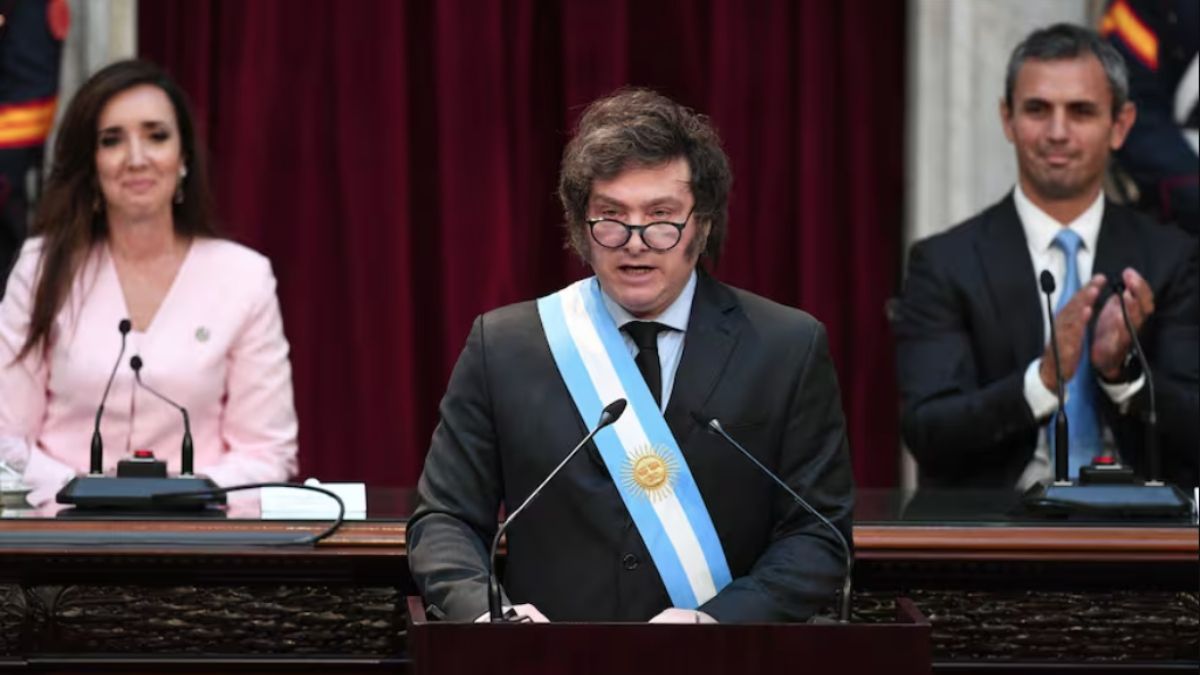As Ámbito anticipated, Javier Milei will call extraordinary sessions and Congress will resume tasks before the end of January. In recent weeks, the call was delayed due to speculation from the ruling party itself, which wanted to have details about the support that I would have from allies and dialogueists for the agenda, which would involve the treatment of high-impact debates both in the Chamber of Deputies as in the Senate.
Manuel Adorni confirmed to this medium that the President, from the Quinta de Olivos, signed the decree that makes the call effectivewhich will be published in the Official Gazette next week. Hours later, the spokesperson ratified the call on his social networks and detailed that the extraordinary sessions will be held between the January 20 and February 21. Within the opposition, they announced that they will use the window of parliamentary activity to insist on the repeal of presidential decrees.
According to the official, the most pretentious reform of Casa Rosada in terms of security, known as “Anti-Mafia Law”, that criminally defines what a criminal organization is in our countrycollectivizes sentences (the worst crime of any member for the entire group) and provides extraordinary powers to the security forces (such as the possibility of detention for 15 days for background check) in certain territories.
In addition, there would be another substantial debate: the treatment of the specifications of two candidates from the ruling party (Ariel Lijo and Manuel García-Mansilla) to integrate the Supreme Court of Justice. Just as Ámbito previously investigated, the Executive Branch does not rule out appointing the two magistrates by decree and has already defined its negotiation strategy: ““Either both or neither”. As an exchange variable, they would access the expansion of the members of the highest court, a modification that is of interest to all the spaces that could provide their guarantees to the Government. The number under discussion is nine judges.
Ariel Lijo Manuel García Mansilla Supreme Court
The Government will once again go to the charge so that Ariel Lijo and Manuel García-Mansilla make up the Supreme Court.
Deputies: political and security reform
With the approval of the Bases law and complementary decrees that arrived later, the President shielded the legislation he needed to deploy his economic plan. This is manifested in the agenda for the extraordinary sessionswhich includes projects on the political reform and modifications in the Penal and Procedural Code. In another sense, it will promote a Compensation Law and Loss Update Index.
In the latter case, the projects – which have a prior opinion – would deal with the possibility intrial in absentia of the accused for serious crimes; the modification of the repetition regimeswhich would imply that a person who is being prosecuted for various criminal cases spends the investigation time in a confinement context before being tried, and the unification of sentences. Figures are also established that preventive detention is extended: presumption of danger of flight and obstruction of the investigation. Both projects were going to be discussed in November, but the session – which included the Clean Record treatment – fell due to lack of quorum.
Precisely, the Government fulfilled its promise to present a Clean File’s own project. Although the modifications made to the wording with respect to the PRO initiative debated in 2024 have not yet been specified, it was learned that it had the advice of lawyer Alejandro Fargosi, former counselor of the Judiciary. “They operated, defamed, misinformed. Others just didn’t want to listen.“Adorni himself noted on social networks.
Other items on the agenda are Reform Law for Electoral Strengthening, that establishes greater requirements for the existence of political parties: count on a minimum of 0.5% of members on the electoral roll (previously it was 0.4%), having the minimum floor of 3% of the votes in two consecutive elections and have presence in at least ten districts (currently five are ordered). Likewise, it seeks to increase the private contribution limitseliminate the electoral advertising spaces provided by the media and apply a sole annual state contribution to political parties proportional to the electoral results.
Embed – https://publish.twitter.com/oembed?url=https://x.com/madorni/status/1877853125786382739&partner=&hide_thread=false
The decree calling for extraordinary sessions was signed moments ago. The agenda includes the “Anti-Mafia Law”, modification of the Criminal Procedure Code in order to regulate the “Trial in absentia”, regime of reiteration and unification of sentences, Reform Law for the… pic.twitter.com/I1BOQIdvCd
— Manuel Adorni (@madorni) January 10, 2025
Among the proposals of electoral reformthe Government is not unaware of the lack of agreements to eliminate the STEP, but he also does not lose his optimism to obtain the votes that would drive him to strengthen his narrative of spending austerity and state transformation. The PRO has already given in its reticent stance and the official expectation is to be able to add votes from the allied tribes and even from dismantle the unanimous position of Unión por la Patriawhere multiple positions coexist and that is why they sustain rejection. The question is What would happen to the libertarian army if the primaries are repealedmuch more so if they intend to share ballots with traditional parties.
Source: Ambito




